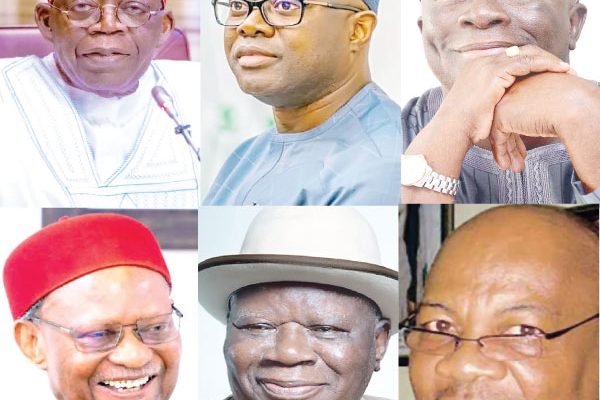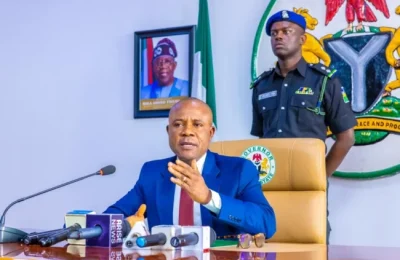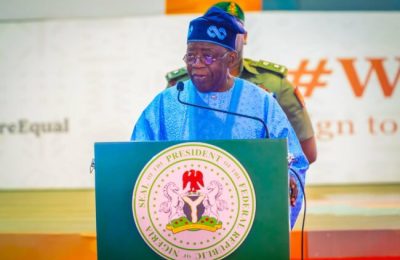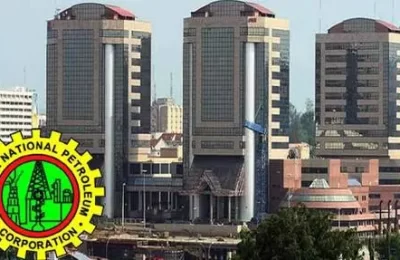

Calls for restructuring of the country are spreading across different political plains and quarter, due concerns over the state of the nation. KUNLE ODEREMI writes on the worries being expressed by Nigerians, following security issues.
THERE was a national proclamation about 14 years ago that by the current decade Nigeria would be in a steady climb in the ladder of economic growth, development and prosperity. A blueprint for the ambitious plan was launched and the machinery set in motion towards achieving the lofty goal. Christened Vision 2020, the gusto with which it was pursued, had inspired many that after decades upon decades of faltering and tottering steps and moves, the so-called Giant of Africa, the largest Black country and heavily endowed with human and natural resources, was indeed poised to occupy its pride of place in the comity of nations, as well as in the league of developed and fast-developing nation.
With a conviction that they had found the antidote for the core issues that had sustained the backward stride of the country, the government mobilised humongous resources that were deployed in practical terms on phased programmes aand policies, as well as interventions across the six geopolitical zones. The beauty of the whole idea crystallised in their declaration that, “By 2020, Nigeria will have a large, strong, diversified, sustainable and competitive economy that effectively harnesses the talents and energies of its people and responsibly exploits its natural endowments to guarantee a high standard of living and quality of life to its citizens.”

Under the vision, trillions of Naira was earmarked to eliminate leakages in revenue generation, corruption, entrench merit as fundamental principle and core value. Expansion of investment in critical infrastructure, human capacity development, deepening social reforms at all levels of government and more importantly, tackling all shades of threats to national security. That goal remained intent and indeed, an illusion; the reality is that none of those objectives seems to have materialised or crystallised in real terms. Instead, the ugly past which was characterised by the poor becoming poorer, graft being institutionalised, while the vestiges of cracks among the ‘federating units’ have assumed grave dimensions. Distraught citizens have resorted to the wave of Japa, the aphorism for migration, through any route whatsoever. Yet, thee roadmap called Vision 2020 was the first a holistic roadmap by the country at “creating the platform for success by urgently and immediately addressing the most debilitating constraints to Nigeria’s growth and competitiveness.”
Similar packages in form of National Rolling Plans designed to be the building blocks of the future that Nigerians desire, deserve and cherish suffered irreparable damage, haemorrhage and extinction, due to a convoluted, fractured and defective federal arrangement. Evidence of the wobbled condition of the vehicle that ought to inspire confidence abound: distrust among the ethnic nationalities making up the country, due to acts of injustice, iniquitous revenue allocation formula, lopsidedness in federal appointments; frightening state of insecurity, other factors that have continued to trigger tension, bloodletting and deprivation. In fact, the last few weeks witnessed one of the worst scenarios in violent crimes in recent times following the wave of kidnappings, abductions and killings, especially in the northern part of the country and the Federal Capital Territory (FCT) Abuja. With the economy in a doldrum and the vast population of Nigerians totally impoverished, the worsening insecurity of lives and property has further pushed the populace to the valley of despair and despondency and to question the capacity of the existing federal structure to save the country from the cliffhanger
It is recalled that in 2017, Babangida called for a reform that would reposition democracy because “If we have repeatedly done certain things and not getting the desired results, we need to change tactics and approach, and renew our commitment. It is our collective responsibilities to engender a reform that would be realistic and in sync with modern best practices. For example, restructuring has become a national appeal as we speak, whose time has come. I will strongly advocate devolution of powers to the extent that more responsibilities be given to the states while the Federal Government is vested with the responsibility to oversee our foreign policy, defence, and economy.” He eadded, that, “Even the idea of having federal roads in towns and cities has become outdated and urgently needs revisiting. That means we need to tinker with our constitution to accommodate new thoughts that will strengthen our nationality. Restructuring and devolution of powers will certainly not provide all the answers to our developmental challenges; it will help to reposition our mindset as we generate new ideas and initiatives that would make our union worthwhile. “The talk to have the country restructured means that Nigerians are agreed on our unity in diversity; but that we should strengthen our structures to make the union more functional based on our comparative advantages. Added to this desire is the need to commence the process of having state police across the federation. This idea was contained in my manifesto in 2010 when I attempted to contest the presidential elections.”

“The initial fear that state governors will misuse the officers and men of the state police has become increasingly eliminated with renewed vigour in citizens’ participation in, and confidence to interrogate power. We cannot be detained by those fears and allow civilisation to leave us behind. We must as a people with one destiny and common agenda take decisions for the sake of posterity in our shared commitment to launch our country on the path of development and growth. Policing has become so sophisticated that we cannot continue to operate our old methods and expect different results. I also want to appeal to the Nigeria media to be more circumspect in their news reportage.”.

Restructuring the way to go
The exit of the military from the corridors of power in May 1999 was considered as a defining moment for civilian populace to reclaim their country from those vultures and vampires that had held down Nigeria to attain genuine progress and prosperity. Courageous stakeholders that bore the torchlight of redemption after the military usurped power and supplanted the federal constitution with unitary one, led and sustained the demand for restructuring such it became the veritable issue at the turn of the Fourth Republic in 1999. Incumbent President Bola Tinubu was among the stalwart of the National Democratic Coalition (NADECO) that led the struggle against the annulment of the June 12, 1993 presidential election by the regime of former military president, General Ibrahim Babangida. The latter has since joined the call for restructuring of the country. He has made such call on three different occasions over the years. Catholic Archbishop of Sokoto Diocese, Reverend Father Matthew Ibrahim Kukah tickled Tinubu on his political odyssey that culminated into his becoming president and why his administration ought to give premium to the restructuring agenda. “You are on the driving seat now. Under your watch, Nigeria must turn a corner,” because “For years, you campaigned for a new Nigeria through restructuring or overhauling the defective machinery of the Nigerian State. For years, you fought the military and other forms of dictatorships,” the former member of the Justice Chukwudifu Oputa panel that investigated human rights abuse in the past, said.
Issues stalling the attainment of nationhood by the country came to the fore and engaged discussion and dissection among dignitaries that attended the lecture on the 85th birthday of a former governor of Osun State, Chief Bisi Akande. The auspicious came at a time the country is beset by serious security challenges, which have compelled states and zones to establish security outfits that could complement federal security agencies. In his capacity as the chairman on the occasion, Governor ‘Seyi Makinde of Oyo State set the agenda of the day, highlighting nexus among fiscal federalism, restructuring and state police vis-à-vis running a responsive and responsible government, especially as it relates to the primary duty of government. He said it was time for the country to consider the path of constitutional reform to accommodate these ideas in the overall interest of the governed. While acknowledging Akande’s immense contributions to national development and his service to the old Oyo State, Osun State and the country in different capacities, Makinde described the ex-governor as a political icon and a dogged personality, who left good legacies in different positions he held, including Deputy Governor and Secretary to the State Government in the old Oyo State, among others. He particularly cited the contributions of Akande to the nt advocacy of Akande on true federalism. Makinde noted: “I read an article published some years ago about a presentation Baba Akande made in 1977 at the Constituent Assembly in Lagos. I will want everybody present here to find the article and read it. He raised some key issues affecting our constitution, which are leading to societal inequality. But I would like to highlight a few issues Baba raised, because there is no better time to do that than this occasion of his 85th birthday to talk about some of the ideals he stands for.
“One of his strongest beliefs is that power should be used to benefit the people. In so doing, he advocated for fiscal federalism, restructuring, state police, and others. I also agree that there is a vital link between these three constitutional issues and the ‘people first’ type of governance. For example, our fiscal federalism involves understanding, which government functions should be centralised and which should be decentralised. You will agree with me that if some of the functions of the Federal Government are decentralised and put in the purview of the state, the people will begin to spend more time focused on getting their state governors to function more effectively. This is part of the article Baba presented in 1977.
“A case in point is the recent amendment in the constitution of the Federal Republic of Nigeria 1999 as amended, devolving power generation. Generation, transmission and distribution are being devolved to the state. So, here in Oyo State, citizens ask why they don’t yet have a state-generating and transmitting power supply. So, it is a shift in focus to the level of government, which is closer to them.
“Also, with restructuring, we can see states devolving powers to local government areas. But what we have right now is the Federal Government directly funding local government areas as if they are answerable directly to the central government. So, these are some of the examples of the things Baba spoke about in 1977. Some of you also know that we tried to get state Police and former Governor Gboyega Oyetola and now Minister of Blue Economy was part of the struggle, but we could not and decided to form Amotekun. And Jide [Sanwo-Olu] said he would use the Neighbourhood Watch. That is the beauty of the devolution of power and true federalism. For over four decades, Baba Akande has been exposing these issues and it is not too late to take actions that show we are learning from history.”
A leading light in the pro-democracy crusade and legal luminary, Chief Olisa Agbakoba has equally set an agenda on restructuring for President Tinubu. He says there is the need for massive legislation and executive action to achieve good governance in political, constitutional, electoral, Legal and judicial spheres, among others. The former NBA president said Nigeria’s governance structures were weak and, therefore, needed to be strengthened through critical laws and policies. “President Tinubu has set the very ambitious goal to grow Nigeria’s GDP to $1 trillion in 7 years. The president has also taken tough decisions towards market correction like removal of fuel subsidies, floating the naira, and liberalizing the foreign exchange market. This is a huge task. He said political governance can easily be resolved by asking critical national questions such as: are we a country, state, or nation? Do we intend to live together as one country and how? He said once those questions are answered, it would set the stage for a new political arrangement that can be articulated in a new Constitution. He said government can engage sub-national ethnic leaders, including the Ohaneze, Arewa, and the pan- Yoruba socio-political group, Afenirere, “because they have national appeal and can provide alternatives.”
On constitutional governance, Agbakoba said it could be resolved if the National Assembly adopts wholesale constitutional replacement as suggested by Professor Nwabueze under Sections 4(1) and 315(1) (a) & (4) of the 1999 Constitution, and further maintained that massive devolution of powers from the federal to state governments would strengthen Institutions that support democracy. “Nigeria’s challenges may seem daunting, but they are not insurmountable, If all these governance issues are implemented in the short term, we are likely to continue to feel the pain but in the long term, results will begin to show. The Tinubu government has a unique opportunity to articulate and drive an uncommon agenda for development. There needs to be a specific, measurable, achievable, relevant, and time-bound implementation plan otherwise it will be all talk and no progress,” Agbakoba said.
On its part , Afenifere, remains resolute in its advocacy a restructured Nigeria to reflect the true federalism status of the pre-1966 era. It says restructuring will help each region develop and flourish at its own pace. Its position tallies with that of the Pan-Niger Delta Forum (PANDEF), which believes that restructuring of Nigeria will be in conformity with fundamental principles of true federalism, equity, fairness and justice. PANDEF wants President Tinubu and the National Assembly to revisit the 2014 National Conference Report, stating that it “provides a good working document for a new nation founded on equity, justice and fair play.” PANDF is under the leadership of the elder statesman, Chief Edwin Clark and parades all major stakeholders in the South-South, Leaders of the South East, South-West, South-South and Middle Belt Regions represented by Ohanaeze Ndigbo Worldwide, Afenifere, PANDEF), and the Middle Belt Forum, have for the umpteenth time urged the President to focus on restructuring Nigeria to save the democratic principles. In the communiqué of a recent meeting and signed by the Leader, Chief (Dr.) E.K. Clark; Afenifere Leader, Chief Ayo Adebanjo; President-General, Ohanaeze Ndigbo Worldwide, Chief Dr Emmanuel Iwuanyanwu; Chairman, Middle Belt Elders Council, and Former Military Governor, Rivers State, General Zamani Lekwot (rtd); President, Middle Belt Forum, Dr. Pogu Bitrus and National Chairman, PANDEF, Senator Emmanuel Ibok-Essien, they demanded that, “That the Federal Government should, as a matter of urgency, and priority, work towards the Restructuring of the country and enthrone True Federalism as was originally entrenched in the 1960 and 1963 constitutions; that, without restructuring, the future of Nigeria and democracy remain bleak and must, therefore, be carried out immediately.”
NADECO
With one of its own in the saddle, NADECO has one main demand from President Tinubu was restructuring of the country so that the country could make meaningful progress. It urged him “as a critical stakeholder in the highest structure of NADECO, who expended his resources and network together with others while we were in the trenches” to “prove beyond reasonable doubts that he remains faithful and committed to restoring Nigeria to the negotiated federal constitution.” National Publicity of NADECO, Mr Ayo Opadokun, in a statement, said: “No one needs to remind Mr President that the current warped, skewed, and lopsided national structure must be reconfigured to give hope and a sense of belonging to all Nigerians that they are an equal joint stakeholder in the Nigerian Project.”
“Even though our preference was for the Nigerian State to first organize the necessary and desirable return to Federal Constitutional Governance upon which Nigeria secured her independence, we are gratified that the partisan politicians have locked horns, campaigned, contested, won and lost election and have exhausted all the legal remedies available for whatever redress they deemed fit in the circumstances of the elections. Now is the time to deliver the much-expected services in the socio-economic and political sphere through well thought out and rightly directed policies desirable to quickly alleviate the unacceptable level of suffering, poverty, economic misery and neglect to which Nigerians have been subjected by immediate past rulers and leaders, for many years now.”
In the views of the highly revered former secretary general of the Commonwealth, Chief Emeka Anyaoku, Nigeria must return to true federal state to overcome most of it’s the critical challenges stalling its attainment of nationhood. Anyaoku, who has been uncompromising in his advocacy once drw a parallel between Nigeria and the Republic of India, regarded as the largest democracy in the world. In an article with the title: Whither Nigeria?: The Need For Restructuring and National Dialogue, Anyaoku, who did a comparative analysis between Nigeria and India, said he believed that in constitutional governance, the model for Nigeria should be India, not the United States with its mainly immigrant population, where it was relatively easier for its leaders to define the country’s national ethos that underpins its constitutional practice. He said what to do in order to arrest the current deteriorating situation in our country, is for both the Federal Government and the National Assembly to urgently organise an all-inclusive national dialogue. “The dialogue should take into account the recommendations of previous national conferences, and the many proposals emanating from various major stakeholders, with a view to modifying our present governance structure and producing a consensus Constitution that can truthfully be described as the product of “we the people of Nigeria. I would like to conclude by stressing the view that, with the current challenges confronting the country, it is only a restructured governance system, that is a Constitution, which in practice can guarantee the treatment of all sections of the population with equity, justice and fairness, that will secure the integrity and political stability of Nigeria, as well as the achievement of its deserved socio-economic development
The views of an erudite scholar and constitutional lawyer, Professor Ben Nwabueze is also on how the country can find its way out of the age-long quagmire. Nwabueze who passed on recently, was of the strong conviction that there were no two ways to the way out of the problem than for Nigeria to restructure and devolve power based on the principle of coordinate relationship between the centre and states. In a book with the title: The Save Nigeria Project, the elder statesman, who is credited with drafting the constitutions of a number of other countries in Africa, wrote: “The Constitution (1999) is defective and unfit for the no less fundamental reason that, while federalism is generally accepted as best to the circumstances and needs of the country, the type of federal system which it establishes for the government of the state ids too lopsided and unbalanced by overconcentrating too much power and financial resources at the centre at the expense and to the detriment of the stats which comprise the ethnic nationalities; it thereby fails to establish and maintain a proper balance between the needs and demands of building a nation and the preservation of diversity in a multi-ethnic, multi-religious and multi-cultural country.” Therefore, Nwabueze blamed the bitter struggle and mutual distrust among the ethnic groups to what he called the over powerful and juicy office of the president of the country.
In the words of the late Senator Abraham Adesanya, “If Nigeria would allow its various component units to retain their identities like the ingredients in the salad bowl, a great nation would emerge from the present rot.” He had opined that the golden moments of Nigeria belonged to the past when there were regional governments with full autonomy and their own constitutions.”
In his national broadcast to mark Nigeria’s centenary as a country, the then President Goodluck Jonathan had enthused about the huge potentials of the country. He had expressed his belief that the future greatness of our country is assured by the favourable tail winds of a resilient population, ecological diversity, rich natural resources and a national; consciousness that riss above our differences.” Beyond the optimism, jonathan underlined the imperative of self-examination, without comprising the insolubility of the sovereignty since nation building is work in progress. He said: “Even as we remain resolute in our conviction that our union is non-negotiable, we must never be afraid to embrace dialogue and strengthen the basis of this most cherished union. A strong nation is not that which shies away from those difficult questions of its existence, but that which confronts such questions, and together provides answers to them in a way that guarantees fairness, justice and equity for all stakeholders.”
Apart from the avalanche of recommendations contained in the reports of past national conferences and committees set up on constitutional reforms, the ruling All Progressives Congress (APC) has the recommendations made by the committee it set on restructuring under the chairman of the former Kaduna State Governor Nasir El-Rufai to serve as a guide on twin issue of restructuring and devolution of power. How soon will these issues prop up in the ongoing implementation of the Renewed Hope Agenda?
YOU SHOULD NOT MISS THESE HEADLINES FROM NIGERIAN TRIBUNE
FULL LIST: 45 visa-free countries Nigerian passport can travel in 2024
Nigeria sits behind Ghana, Guinea, Kenya, Lesotho, Morocco, Benin Republic and Namibia which are at…
How my brother and I became professor same day in same varsity —UNILORIN don
Recently, two brothers –Ahmed Oloduowo Ameen and Mubarak Oloduowo Ameen– were promoted to…
‘I expected N2,000 as my share from sale of human head we got at Saki cemetery’
Thirty-two-year-old Alli and Abdullahi, aged 35, who were the two suspects arrested by…
Why Port Harcourt refinery is yet to start production—Soneye, NNPCL Chief Comm Officer
Mr Femi Soneye is the Chief Corporate Communications Officer (CCCO) of the…
Fear women, fair women and Minister Ojo
Betta Edu, Sadiya Umar-Farouq and Halima Shehu are the reigning women in our…
What you should know about players in Nigerian 2024 AFCON team
The Nigerian football team have appeared in the finals of the Africa Cup of Nations on twenty different occasions. Nigeria has…








